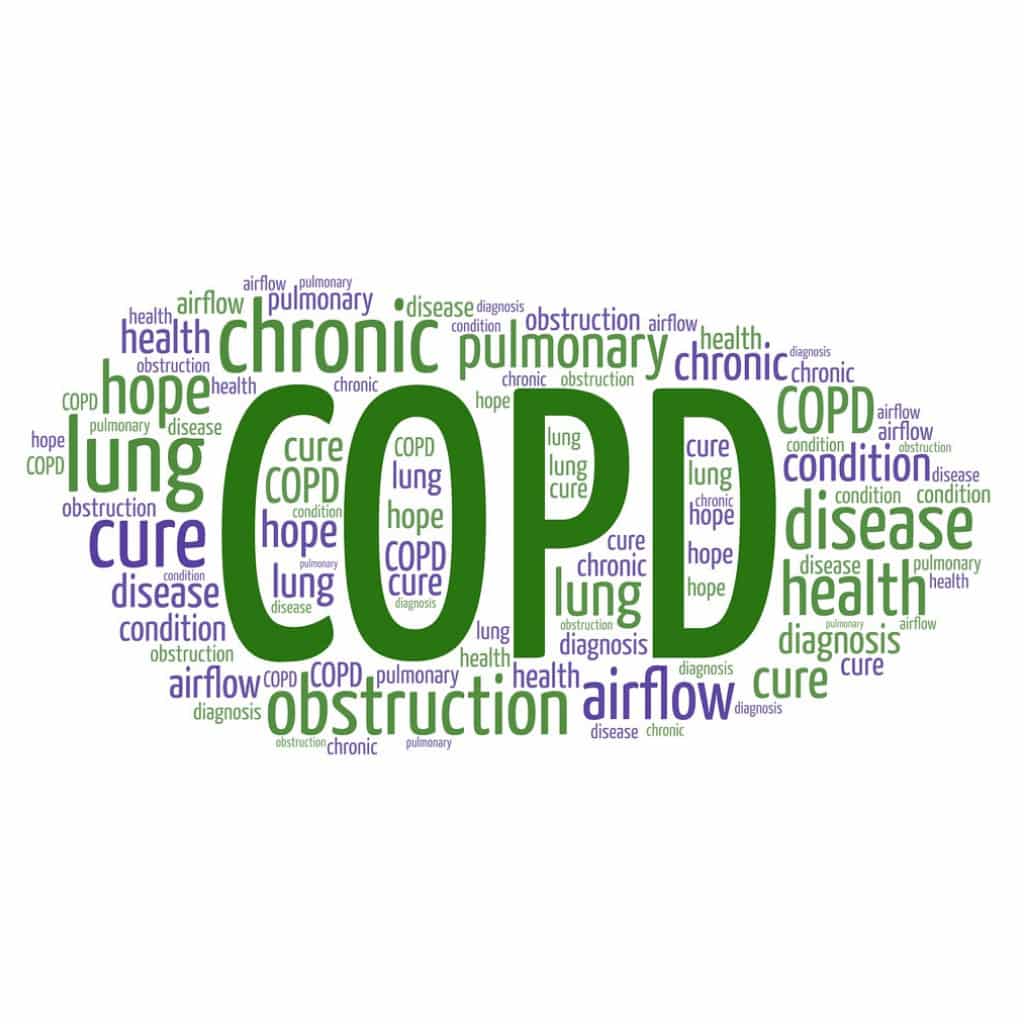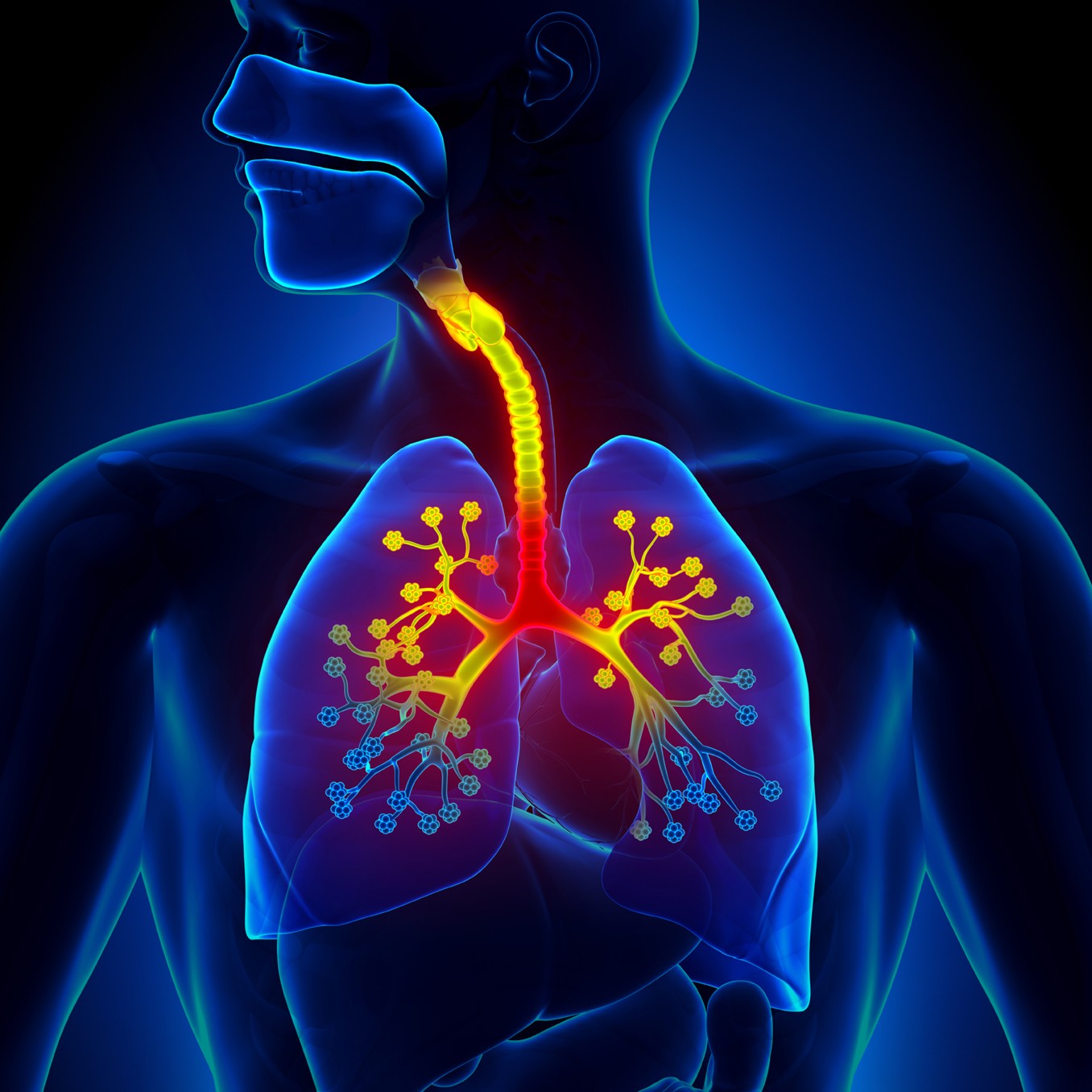
Have COPD? Read Up on Silent Reflux.
At-A-Glance
- Reflux into the lungs is often “silent,” which means it occurs at night without any symptoms. I call this silent nocturnal (nighttime) respiratory reflux, and it is a potential killer that affects millions of Americans.
- In the case presented here, COPD is caused by respiratory reflux, also called LPR, which can also cause pseudo-asthma, chronic bronchitis, cough, and even lung cancer.
- The greatest risk factors for silent nocturnal respiratory reflux are eating the evening meal close to bed, overeating, and too much alcohol. Ideally, the evening meal should not be the major refueling meal of the day.
A 78-year-old, incapacitated, retired man came to see me. He was huffing and puffing, dragging an oxygen tank as he struggled to schlep from my waiting area into my office. His reported diagnosis was severe, progressive COPD (chronic obstructive lung disease).
I asked him why he thought he had COPD, and he responded, “Smoking.” But it turned out that he had quit smoking 25 years ago, and then five years after that he got COPD. (Note: For most people, five years after quitting smoking, the lungs are usually good, often near-normal. Thus, this patient’s smoking early in life could not be the cause of his subsequent, severe, progressive COPD.)
I asked him how he’s been doing, and he said his COPD has been getting worse every year, and he’s almost entirely housebound, as a result.
I asked him why he’d come to see me now.
Holding up a copy of The Chronic Cough Enigma, he replied, “It’s hard for me to do much of anything. But I read your book, and I think that I might have LPR.”
In addition to symptoms of shortness of breath, he struggled with copious excess mucus, choking episodes, sleep apnea and an unrelenting chronic cough. The cough was usually “wet” / productive.
Reflux Causes Lung Disease, Including COPD
On throat examination, he had severe LPR with a nocturnal-predominant pattern. Just by exam, he demonstrated that he refluxed all night, every night into his throat and lungs. In addition, he had specialized reflux testing that confirmed this pernicious pattern of reflux.
Treatments Focused on Preventing Nighttime Reflux
The simplicity of this patient’s treatment was remarkable. Because he went to bed at 10 PM, he was asked to finish all food and drink prior to 5:00 PM, five hours before bedtime, and he was asked to sleep sitting up. The idea was for him to go to sleep with an empty and quiet stomach, and sleep on a high incline so that gravity might help prevent the upward backflow of acid into his throat and lungs.
In addition, he was placed on acid-suppressive medications, 20 mg of Pepcid (famotidine) before breakfast, 20 mg before dinner and 40 mg before bed) and an alginate (Gaviscon Advance Aniseed) after dinner and before bed. In addition, he was put on a low-fat and low-acid diet, the induction (“detox”) diet from Dropping Acid: The Reflux Diet Cookbook & Cure. Finally, no alcohol, chocolate or other well-known reflux-trigger foods.
Miraculous Results!
Just three weeks after starting treatment, the patient called me to inform me that his breathing had improved dramatically. Every day he blew into a machine that measured his lung volume, and he had not blown more than 1700 ML for a decade… the day he called me, he blew 2500 ML (the max of the spirometer).
Six months into treatment, he was been able to reduce both the concentration and use of oxygen, and around the house, he went for longer and longer periods of time without using oxygen at all.

Before and after photos of the patient (published with the permission of the patient)
Nine months into treatment with me, here’s what he reported:
- When using oxygen, my flow rate (3/4L) is down more than 80% from the 3-4L that I was using a year ago, about when I came to see you
- I can go five hours a day without any oxygen. And yes, I continue to improve.
- And here’s what I am faithfully doing (thanks to Dr. K) for my reflux treatment:
- I never lie down within five (5) hours of eating
- I sleep almost sitting up (for sure more than 45-degrees)
- I’m taking famotidine and no dangerous PPIs like Nexium, Dexilant, Prilosec
- I eat healthy, like for breakfast egg-white omelets, chicken or fish for dinner
- I stopped drinking alcohol (Dr. K insisted!)
- A year ago, I lost my vacation deposit, because I was too sick to go. Well, I just got back from the best vacation that I have had in more than 10 years. We drove from Westchester to Delaware, NC and Tampa. (Unfortunately, no baseball.)
The patient told me that he had his life back. He was able to do things with family and friends. And as time goes on, I expect that he will continue to improve.
Compare this outcome with the path he was on: some ineffective pulmonary drug regimen and a steady downhill decline that would almost certainly lead to his death.
Reflux Causes COPD
This patient’s COPD was caused by reflux. It was silent nocturnal respiratory reflux, and it was unrecognized by the patient or the patient’s doctors. In my opinion, there is no other possible underlying cause for this man’s COPD. And the proof of the pudding is in his recovery.
This case is important: it ought to be a 60 Minutes story, because it is likely that this case is representative of the widespread misdiagnosis of respiratory reflux. Imagine how many thousands, or perhaps millions of people have silent acid reflux (respiratory reflux) affecting how they breathe, their lungs and the quality of their lives?
Medical Alert: Wet Cough Is Usually Reflux
My experience suggests that patients who have a wet (productive) chronic cough have reflux, whether they are smokers (or ex-smokers) or not. Every physician who has a patient with a wet cough should consider that silent reflux is part of the story, maybe the whole story.
One of the problems in the healthcare system is specialists: the go-to physicians for lung problems (pulmonologists) know nothing at all about reflux and almost never consider it, and the go-to physicians for reflux (gastroenterologists) are clueless when it comes to LPR and respiratory reflux.
Respiratory Reflux (LPR) Causes Cancer
One could argue that the combination of smoking and acid reflux (especially respiratory reflux), is likely the most deadly combination leading to not only COPD, but lung cancer as well. In my career I have cared for a handful of patients with lung cancer who never smoked… all had severe respiratory reflux.
I believe that one can get lung cancer without smoking but not without reflux. And the same might be said for throat and esophageal cancers.
Paradigm Shift: Reflux (LPR) May Cause Most Respiratory Disease(s)
In our lifetimes, there has been a societal shift about food and eating to such a degree that having silent nighttime respiratory reflux is virtually cultural. For most people, the evening meal is the major refueling meal of the day, and it is the time (later and later) that people gather for social interaction
I believe that silent nocturnal respiratory reflux is so common and unrecognized that is the great masquerader of our time. In my experience with my patients, 70% of respiratory diseases are due to reflux and are treatable. By treatable, I mean curable.
Take this in:
- Patients with sinus disease have sinus surgery, and neither they nor their doctors know that reflux is the cause.
- Patients with asthma get expensive and ineffective asthma treatment, and neither they nor their doctors know that reflux is the cause.
- And patients with lung diseases such as chronic bronchitis, COPD, and lung cancer have silent reflux, too, and neither they nor their doctors know that reflux is the cause.
What to Do if You Have A COPD Diagnosis and Suspect Acid Reflux
First, make some lifestyle changes to see if your “COPD” is really acid reflux – if your breathing improves in a couple weeks, you’ll know it’s reflux!:
Please understand that reflux is curable with effort and commitment to change.
I’ve written four books about these topics: Dropping Acid: The Reflux Diet Cookbook & Cure, The Chronic Cough Enigma, Dr. Koufman’s Acid Reflux Diet, and Acid Reflux in Children.
However, here are the most important pieces of advice I can offer:
- No eating or drinking within five hours of going to bed
- Sleep on an incline no less than 45-degrees (gravity helps)
- Eat five small meals
- No fried or high-fat foods
- No alcohol, chocolate or soft drinks (including fruit juice) of any kind
- Take Pepcid 20 mg. before each meal and before bed
- Take a tablespoon of Gaviscon Advance Aniseed after each meal and before bed (not available in stores in the U.S., but available online)
- Drink alkaline water as much as you conveniently can, especially after more acidic food/drink – bottled alkaline water is convenient, and/or consider buying an alkaline pitcher (and test it or anything else with pH paper or a pH tester)
If you’ve read at least one of my books and you’re following this guidance and you still need help, you can book a consultation with me.
P.S. – Why Doesn’t My Doctor Know About This?
I get asked this all the time: “Why doesn’t my doctor know about this?!”
My primary research on acid reflux and chronic cough has been available for decades. Dropping Acid has been a best-seller for a decade. And I was on TV and quoted in mainstream media for many years. But the medical community remains virtually unaware that LPR (laryngopharyngeal reflux), today often called silent reflux or respiratory reflux (all terms I coined), is a major cause of respiratory issues and chronic cough. In addition, neurogenic cough seems almost never properly diagnosed.
Thousands of my patients have been on a merry-go-round of specialists… a GI doctor, an ENT, an allergist, an asthma specialist. They’ve had tens of thousands of dollars of tests, prescriptions for medications that never could have helped them, and their respiratory issues never improved.
The problem in the U.S. is over-specialization. Most Americans mistakenly believe that they must see specialists for almost every medical problem. What people don’t know is that specialists determine what services insurance will pay the most for, and they can choose to deliver those expensive services… even for patients who don’t need them! The idea of dividing the body up into small, non-overlapping, anatomic areas makes no sense. The respiratory and digestive systems are intimately connected, and specialists do not seem to know that.
Imagine building a house by allowing each workman to do his own thing. The plumber would put a sink in every room. The electrician would install chandeliers on every ceiling. The carpenter would panel every room in luxurious wood. That’s how America’s medical specialist system works.
The evolution of my personal medical practice as an expert in acid reflux that affects the throat and airway (LPR, silent reflux, respiratory reflux – all terms that I coined) helped me see that silent respiratory reflux was ubiquitous. That means it’s all over the place, and it’s likely in almost half of Americans. REFLUX is the single most common cause of “allergies,” “asthma,” “sinus disease,” true sleep apnea, and chronic cough.
Please read up and advocate for yourself, finding solutions that may be elusive through traditional care channels.









